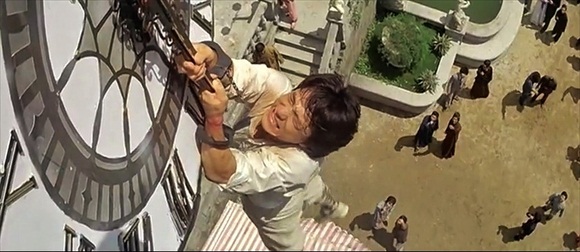 NUMBER 4
NUMBER 4
Predator
Director: John McTiernan
Starring: Arnold Schwarznegger, Carl Weathers, Kevin Peter Hall
Year: 1987
IMDB Rating: 7.8/10
The 80s was the era of the action flick, where everything was large and loud; large guns and loud explosions, large muscles and loud one-liners. It was an era for badassery, and leading the way was none other than Arnold Schwarzenegger. The Austrian man of pure muscle packed a punch and made many successful films during the decade, including: Commando, Red Heat, and The Running Man. All of these films are cheesy popcorn-flicks that can be enjoyed over again and require very little brain function to watch. One of the films featuring Schwarzenegger was Predator, an action film with a science-fiction twist.

Released in 1987, the film takes place in a remote jungle in Central America, where an elite special task force are sent on a mission to rescue hostages from guerrilla territory (when I was a kid, I thought the film was referring to gorillas…idiot). Leading the six-man team is Dutch (Schwarzenegger), who is tasked by CIA “pencil pusher” Dillon (Weathers) to infiltrate the base of the insurgents and rescue any surviving hostages. The film begins like any standard action-film and, for the first 30 minutes, you wouldn’t think the film had anything to do with aliens. After completing their mission, the team head back to their extraction point and suddenly the genre shifts to horror as members of the team are picked off one by one by an unseen, otherworldly hunter.

The script is lacking in character development and nuance, save for the titular Predator, which is an intimidating and mysterious character that hunts the survivors with deadly determination. While sequels and crossover films have since explored the backstory of the Predator species, I’ve found that they diminish the intrigue of the original character and I prefer to speculate on the creature using the short amount of evidence provided in Predator. Why has it come to Earth? Is it alone? These questions and their inferences provide a more fulfilling film in my opinion.

Why is it one of my favourite films? I like the setting, the genre switch after the first act and the aforementioned mystery of the Predator. It’s an easy watch and epitomises Schwarzenegger’s career and the trend of the 80s action film.
Trailer (Classic 80s Cheese):
Get to the Chopper:






 NUMBER 6
NUMBER 6



 NUMBER 7
NUMBER 7









